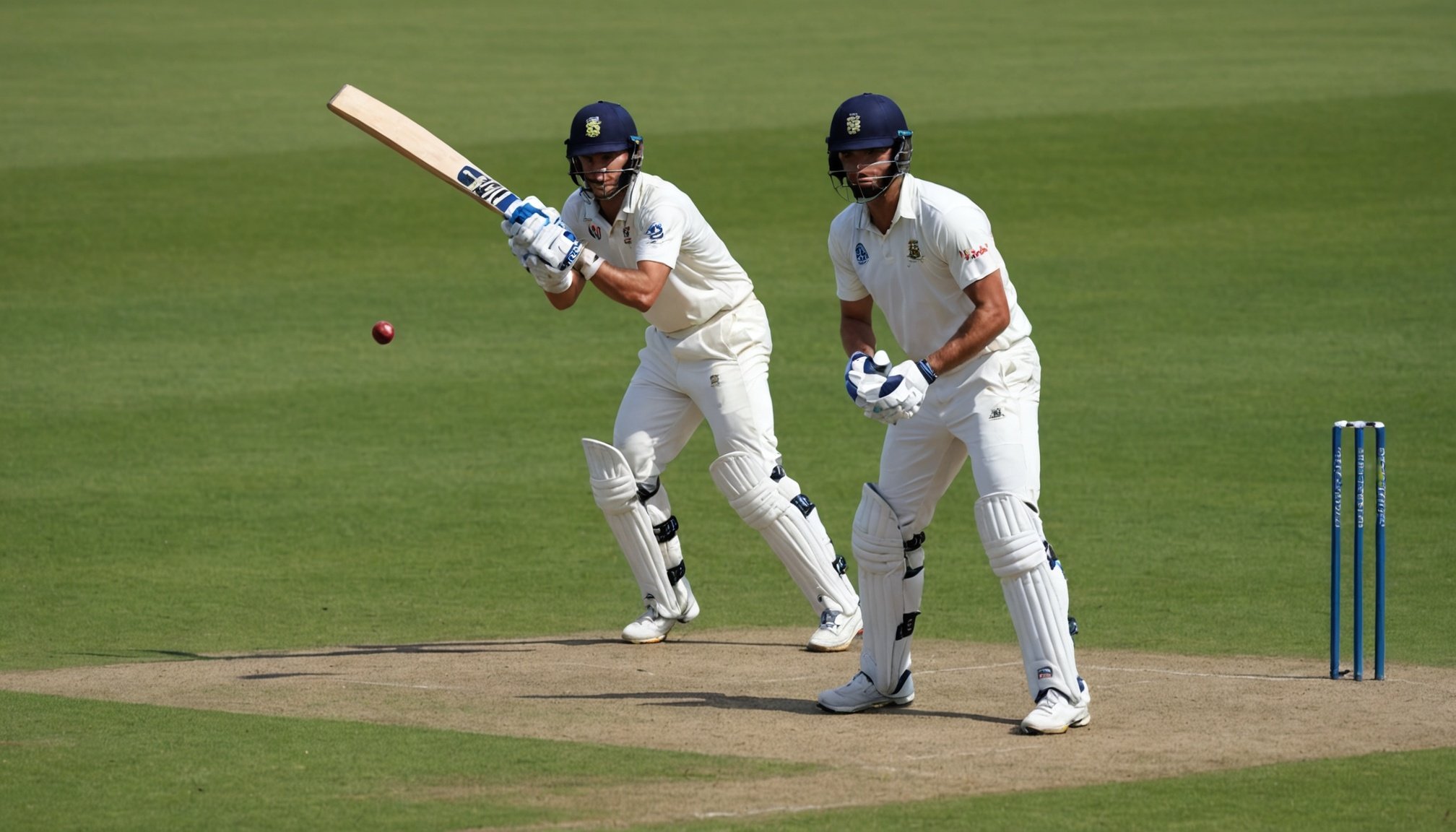Understanding Cognitive Training in Cricket
Cognitive training, a revolutionary concept in sports, is essential in enhancing cricket performance, significantly impacting decision-making under pressure. In cricket, cognitive training involves developing mental processes to improve skills, such as anticipation and concentration, contributing to better outcomes on the field.
Decision-Making Significance in Cricket
In cricket, decision-making is crucial for batsmen, impacting their success in the game. Quick and accurate decisions determine their ability to read the bowler’s intentions and respond effectively. Under high-pressure situations, successful decision-making can differentiate a good batsman from a great one, as they have to decide in a split second whether to hit, defend, or leave a ball.
Topic to read : Mastering High-Speed Bodyboarding: The Secrets to Precision and Control in Extreme Tricks
Influence of Cognitive Skills on Performance
Cognitive skills, such as attention and memory, significantly influence a player’s ability to perform under pressure. As the game progresses, fatigue sets in, and the ability to maintain focus wanes. Enhanced cognitive training helps athletes manage stress, maintain high concentration levels, and execute strategies effectively. This not only improves cricket performance but also boosts consistency in delivering strong performances throughout matches. By honing these mental faculties, players develop resilience and increase their likelihood of excelling, even in the most challenging scenarios.
Practical Cognitive Training Techniques
Enhancing a cricketer’s performance through cognitive techniques is vital, particularly under high-pressure situations. Training methods focusing on cognitive skill development delve deep, offering notable benefits.
Also to see : Secure your gains: key injury prevention techniques for powerlifters
Visualization and Mental Rehearsal
Mental imagery is a foundational element for match preparation. By vividly visualizing match scenarios, players mentally rehearse potential plays, enhancing their focus and foresight. Techniques, like involving all senses in imagery exercises, can bridge the gap between visualization and reality. For instance, professional players often simulate the sensation of hitting a ball, reinforcing muscle memory and sharpening their instincts before stepping onto the field.
Reaction Time Exercises
Reaction speed is crucial for swift decision-making in cricket. Training exercises like high-intensity interval drills cater to this need. By striving for enhanced agility and quick reflexes, players can significantly improve their game dynamics, emulating batsmen who have excelled through such dedicated exercises.
Game Scenarios and Simulation
Scenario-based simulations mirror real-game pressure, effectively honing decision-making skills. Implementing these simulations allows players to adapt to changing circumstances on the field. Coaches utilize these cognitive techniques, drawing insights from professional strategies that emphasize seamless transition from training to game day, ultimately enhancing overall cricket performance.
Research and Statistics Supporting Cognitive Training
Cognitive research has significantly contributed to understanding how mental preparation impacts athletic performance, especially in sports like cricket. Numerous studies have examined the role of cognitive training in enhancing game performance and decision-making skills. Researchers have found that training aimed at developing attention, memory, and other cognitive faculties leads to measurable improvements on the field.
Performance statistics support the effectiveness of cognitive techniques in cricket. Players who engage in mental training often show marked improvements in their batting averages and decision-making efficiency. Data from these studies reveal that enhanced cognitive skills can lead to quicker reaction times and better anticipation of opponents’ actions, crucial for success under pressure.
Additionally, scientific findings highlight the effectiveness of scenario-based training and mental rehearsal. Research indicates that these approaches enable players to mentally simulate realistic match situations, helping them adapt to varying conditions and challenges. This preparedness is reflected in improved performance metrics, demonstrating how cognitive strategies can be a game-changer for cricketers. By systematically analysing these statistics and research findings, the sporting community gains valuable insights into the profound impact cognitive training can have on cricket performance.
Real-Life Success Stories
In the realm of professional cricket, cognitive training has left an indelible impact, showcasing success stories that are both inspiring and instructive. Among these are elite batsmen who have embraced cognitive training to enhance their game. By integrating mental cognitive techniques such as visualization and reaction time exercises, these players have honed their skills to achieve remarkable on-field performances.
Case Study: Elite Batsmen and Cognitive Training
Several renowned cricketers have adopted cognitive training methods to gain a competitive edge. These athletes often implement specific strategies, like scenario-based simulations, to improve decision-making. For instance, using mental rehearsal to envision complex match dynamics facilitates better anticipation and split-second choices. Consequently, their refined focus and adaptability contribute profoundly to cricket performance, illustrating how innovative methods promote success.
Coaches’ Perspectives on Cognitive Training
From the coaches’ standpoint, implementing cognitive strategies within cricket training is of paramount importance. These insights emphasize progression in player development, highlighting its role in broadening traditional coaching frameworks. Coaches report markedly improved player performance and stress resilience through these strategies. Additionally, they continually innovate training practices, keeping pace with advancements in cognitive science, ensuring athletes remain at the forefront of sporting excellence.
Tips for Batsmen Implementing Cognitive Training
Adhering to practical tips is essential for batsmen seeking to enhance their cricket performance through cognitive training. Integrating cognitive practices into routine training can significantly aid in developing skills for better performance on the field.
Batsman training should start with setting realistic goals tailored to individual needs. By gradually building cognitive skill development, batsmen can avoid the pitfalls of setting unattainable targets that might hinder progress. For instance, focusing on specific exercises like reaction time drills can sharpen decision-making, while visualization aids in mentally rehearsing various game scenarios.
To facilitate cognitive training sessions, players can access a range of resources and tools. Digital platforms offer training software and apps designed to target specific skills, such as concentration and anticipation. Additionally, incorporating scenario-based simulations into practice can help replicate real-game pressure, enhancing strategic thinking under stress.
Performance improvement hinges on consistent practice and evaluation. Regularly assessing progress allows batsmen to refine their techniques and adapt strategies as needed. Engaging with experienced coaches who understand cognitive methods can provide invaluable insights, ensuring that players remain on the path to achieving their cognitive training objectives. By embracing these practical tips, batsmen can unlock new levels of performance excellence.











